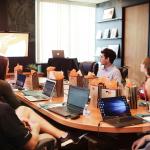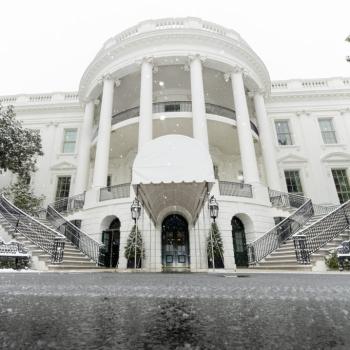
In a quest to understand the evolving landscape of hybrid work, I engaged in thought-provoking dialogues with Livia Freudl, Global Head of Human Resources & Senior Vice President HR at Varian, a Siemens Healthineers company, Alicia Pinn, Chief Human Resources Officer, at The Hidden Genius Project, and Jeff Hicks, Senior Director of People and Culture, at Janus of Santa Cruz. Their collective insights provide a multi-faceted view of how hybrid work is reshaping the workplace.
Diverse Benefits and the Evolving Work Culture
At Varian, which was acquired by Siemens Healthineers in 2021, the hybrid work model is more than a mere policy; it’s a paradigm shift towards employee-centricity. This model recognizes that productivity is not solely about the hours spent at a desk but about the quality of work and the well-being of the workforce. Varian’s approach to hybrid work is deeply intertwined with its organizational culture, emphasizing the importance of life-work balance. This phrasing, intentionally placing “life” before “work,” symbolizes a commitment to the holistic well-being of employees. By allowing staff to tailor their work environments and schedules, Varian fosters an inclusive atmosphere where diverse talents can thrive, sparking innovation and creativity. This approach not only enhances employee satisfaction but also drives a dynamic and adaptive business model.
The Hidden Genius Project, steered by Pinn’s vision, takes a nuanced approach to hybrid work. Recognizing the critical role of flexibility in today’s workforce, Pinn links it directly to employee health and engagement. This connection is vital, acknowledging that an employee’s physical and mental well-being is paramount to their productivity and involvement in the workplace.
Hicks’ observations at Janus of Santa Cruz bring a unique generational perspective to the conversation. He notes that hybrid work is perceived and valued differently across various age groups within the workforce. Younger generations, who often prioritize flexibility and work-life balance, may view hybrid work as an essential aspect of their job choice. In contrast, older generations might appreciate the traditional aspects of office work but also see the benefits of a flexible model as it relates to work-life balance and family commitments. At Janus of Santa Cruz, hybrid work is seen as a key component of the organization’s benefits package, enhancing its appeal in the competitive job market. This approach not only caters to the diverse needs of their current workforce but also positions the organization as an attractive option for potential recruits from various demographic groups. The implementation of a hybrid model at Janus of Santa Cruz, therefore, is not just a response to the changing work landscape but a strategic move to harness the strengths and preferences of a multi-generational workforce.
Navigating Challenges: Culture, Accountability, and Equity
The journey towards a successful hybrid work environment, as elucidated by Freudl, Pinn, and Hicks, involves navigating a complex web of challenges, each unique to their organizational context and culture.
At Varian, the primary challenge in the hybrid work model is the integration of virtual and in-person interactions. Freudl emphasizes the need for maintaining a robust, collaborative environment that bridges the physical distance created by remote work. This challenge is not just technological but also cultural. Varian seeks to ensure that remote employees feel as engaged and connected as their in-office counterparts, fostering a sense of unity and shared purpose. To achieve this, the company invests in communication tools and collaborative platforms, but more importantly, in nurturing a culture where every employee, regardless of their location, feels valued and heard. Regular virtual meetings, team-building exercises, and an open-door policy for feedback and suggestions are part of Varian’s strategy to maintain a cohesive and inclusive work environment.
Pinn, from The Hidden Genius Project, identifies specific drawbacks of hybrid and remote work, including reduced collaboration and efficiency concerns. To mitigate these, the organization has adopted a tailored approach, adjusting policies based on roles and departmental needs. This flexibility allows for a smoother blending of remote and in-person work, ensuring that employees remain connected and collaborative. Trust is fostered through clear communication channels and regular check-ins, ensuring that team members are accountable and transparent about their work progress. To address efficiency, The Hidden Genius Project leverages digital tools and platforms to streamline workflows and facilitate quick and effective communication, ensuring that the remote work model does not hinder productivity but rather enhances it.
At Janus of Santa Cruz, Hicks points out the difficulty in sustaining company culture and accountability in a hybrid work environment. Given the nature of their work in mental health, the organization faces unique challenges in implementing equitable hybrid policies. Some roles inherently require in-person interaction, creating a disparity in who can and cannot work remotely. This situation has led to equity concerns and has posed a challenge for maintaining a unified company culture. To address these issues, Janus of Santa Cruz engages in active dialogue with employees, ensuring that all voices are heard and considered in policy-making. Leadership training and development are crucial in equipping managers with the skills to lead diverse teams effectively, where some members are remote while others are in-office. Additionally, external consultants have been instrumental in helping the organization restructure and streamline its processes to better accommodate the hybrid model while minimizing the impact on frontline staff.
The Role of Internal and External Experts in Shaping Hybrid Work
The role of internal and external experts in shaping and refining hybrid work models is pivotal, as evidenced by the strategies employed by Varian, The Hidden Genius Project, and Janus of Santa Cruz. Each organization, though differing in their approaches, highlights the importance of expertise in navigating the complexities of hybrid work environments.
At Varian, the focus is on developing a dedicated team of internal ambassadors for hybrid work. This initiative, is about more than just implementing policy; it’s about cultivating a culture. These ambassadors are chosen not just for their expertise but for their passion and commitment to the concept of hybrid work. Their role involves advocating for the model, facilitating communication between employees and management, and ensuring that the hybrid work environment aligns with the company’s goals and values. These ambassadors also play a crucial role in collecting feedback and insights from the workforce, which are crucial for continuous improvement and adaptation of the hybrid model. By investing in these internal champions, Varian demonstrates a commitment to making hybrid work a core part of its organizational DNA.
The Hidden Genius Project, under Pinn’s leadership, emphasizes the adaptive role of HR and supervisors in their hybrid work model. In this organization, HR and supervisory roles are not just administrative or managerial; they are dynamic and evolving, requiring a deep understanding of the challenges and opportunities presented by hybrid work. These internal experts are tasked with ensuring that policies are fair, transparent, and responsive to the needs of the workforce. They are also responsible for monitoring the effectiveness of hybrid work arrangements and making adjustments as needed. This approach underscores the importance of having internal experts who are not only knowledgeable about hybrid work but also flexible and responsive to the changing dynamics of the workplace.
Hicks at Janus of Santa Cruz views internal experts as crucial change agents in the adoption and evolution of hybrid work policies. However, he also recognizes the value of external resources in informing and supporting these changes. This dual approach allows the organization to base its policies on a combination of internal insights and external best practices. By leveraging data and research from external sources, Janus of Santa Cruz can ensure that its hybrid work policies are not only innovative but also grounded in proven strategies. This approach is particularly effective in addressing recruitment, retention, and enhancing the overall employee experience in a hybrid work environment. The collaboration between internal experts and external consultants facilitates a more holistic and well-rounded strategy for managing the complexities of hybrid work.
My own experience as a consultant helping clients implement hybrid work models most matches that of Hicks: myself as an external expert providing guidance on best practices and external benchmarks to internal experts. After all, having seen many hybrid models and after helping implement over two dozen, I know where the tripwires are and also how to avoid reinventing the wheel.
Envisioning the Future: Hybrid Work as the New Norm
Looking ahead, the consensus among all three is that hybrid work is not just a trend but a fixture in the modern workplace. It’s a recruitment and retention tool, appealing to new generations of workers and adapting to various industry needs. The future of work is characterized by flexibility, innovation, and a deep understanding of employee needs across generations.
Overall, the insights from Freudl, Pinn, and Hicks offer a comprehensive view of the hybrid work model. This model balances flexibility with accountability, addresses challenges of culture and equity, and utilizes both internal and external expertise for continuous improvement. As we move forward, hybrid work stands as a testament to the evolving needs of the workforce, promising a more inclusive, dynamic, and efficient work environment.
Key Take-Away
Hybrid work is transforming workplace culture by prioritizing employee well-being, flexibility, and inclusivity. Insights from leaders at Varian, The Hidden Genius Project, and Janus of Santa Cruz highlight its role in enhancing productivity and job satisfaction, while navigating challenges in maintaining culture and equity…>Click to tweet
Image credit: Jason Goodman/unsplash
Originally published in Disaster Avoidance Experts
Dr. Gleb Tsipursky was lauded as “Office Whisperer” and “Hybrid Expert” by The New York Times for helping leaders use hybrid work to improve retention and productivity while cutting costs. He serves as the CEO of the boutique future-of-work consultancy Disaster Avoidance Experts. Dr. Gleb wrote the first book on returning to the office and leading hybrid teams after the pandemic, his best-seller Returning to the Office and Leading Hybrid and Remote Teams: A Manual on Benchmarking to Best Practices for Competitive Advantage (Intentional Insights, 2021). He authored seven books in total, and is best know for his global bestseller, Never Go With Your Gut: How Pioneering Leaders Make the Best Decisions and Avoid Business Disasters (Career Press, 2019). His cutting-edge thought leadership was featured in over 650 articles and 550 interviews in Harvard Business Review, Forbes, Inc. Magazine, USA Today, CBS News, Fox News, Time, Business Insider, Fortune, and elsewhere. His writing was translated into Chinese, Korean, German, Russian, Polish, Spanish, French, and other languages. His expertise comes from over 20 years of consulting, coaching, and speaking and training for Fortune 500 companies from Aflac to Xerox. It also comes from over 15 years in academia as a behavioral scientist, with 8 years as a lecturer at UNC-Chapel Hill and 7 years as a professor at Ohio State. A proud Ukrainian American, Dr. Gleb lives in Columbus, Ohio. In his free time, he makes sure to spend abundant quality time with his wife to avoid his personal life turning into a disaster. Contact him at Gleb[at]DisasterAvoidanceExperts[dot]com, follow him on LinkedIn @dr-gleb-tsipursky, Twitter @gleb_tsipursky, Instagram @dr_gleb_tsipursky, Facebook @DrGlebTsipursky, Medium @dr_gleb_tsipursky, YouTube, and RSS, and get a free copy of the Assessment on Dangerous Judgment Errors in the Workplace by signing up for the free Wise Decision Maker Course at https://disasteravoidanceexperts.com/newsletter/.














